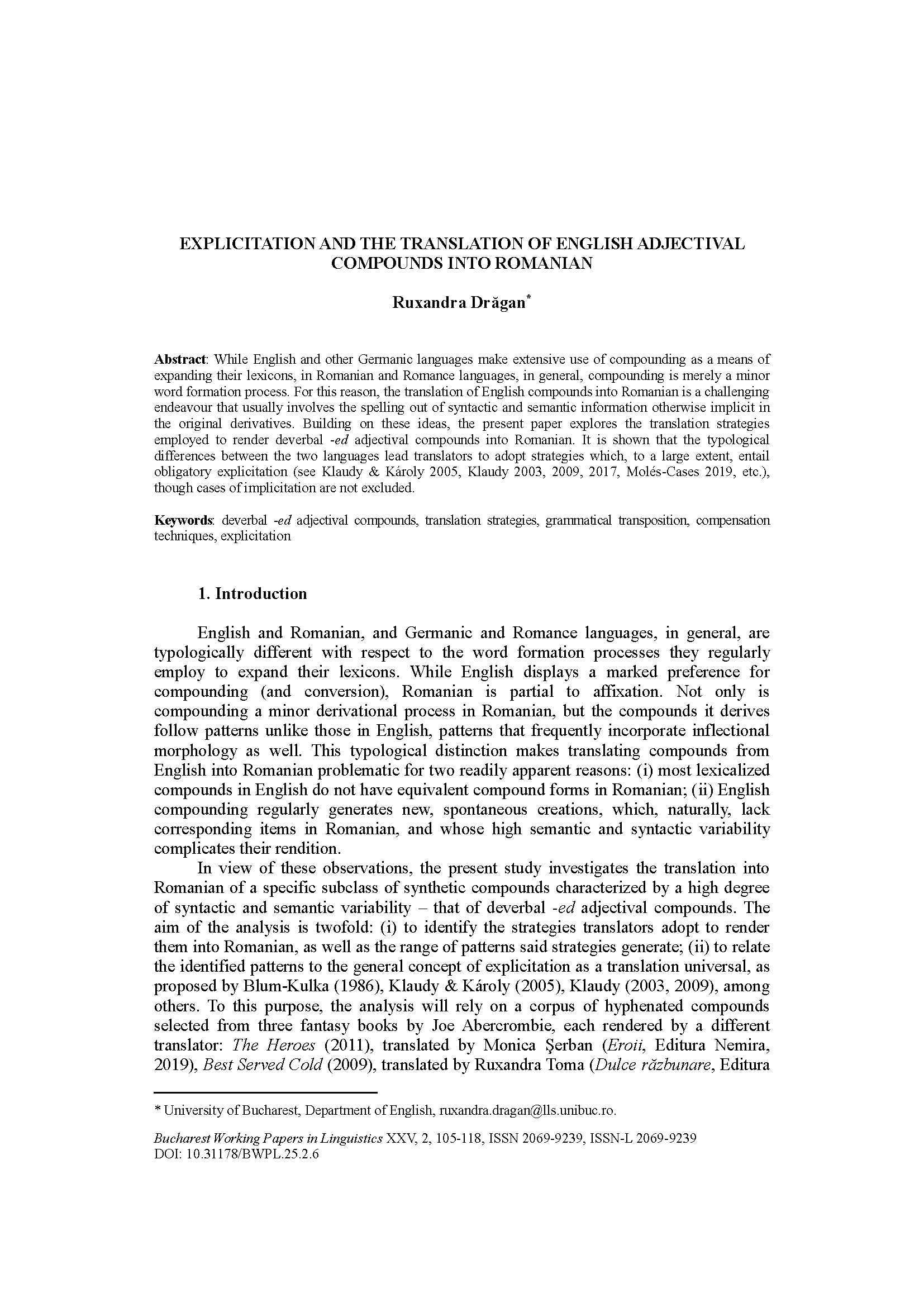EXPLICITATION AND THE TRANSLATION OF ENGLISH ADJECTIVAL COMPOUNDS INTO ROMANIAN
DOI:
https://doi.org/10.31178/BWPL.25.2.6Cuvinte cheie:
deverbal -ed adjectival compounds, translation strategies, grammatical transposition, compensation techniques, explicitationRezumat
While English and other Germanic languages make extensive use of compounding as a means of expanding their lexicons, in Romanian and Romance languages, in general, compounding is merely a minor word formation process. For this reason, the translation of English compounds into Romanian is a challenging endeavour that usually involves the spelling out of syntactic and semantic information otherwise implicit in the original derivatives. Building on these ideas, the present paper explores the translation strategies employed to render deverbal -ed adjectival compounds into Romanian. It is shown that the typological differences between the two languages lead translators to adopt strategies which, to a large extent, entail obligatory explicitation (see Klaudy & Károly 2005, Klaudy 2003, 2009, 2017, Molés-Cases 2019, etc.), though cases of implicitation are not excluded.




